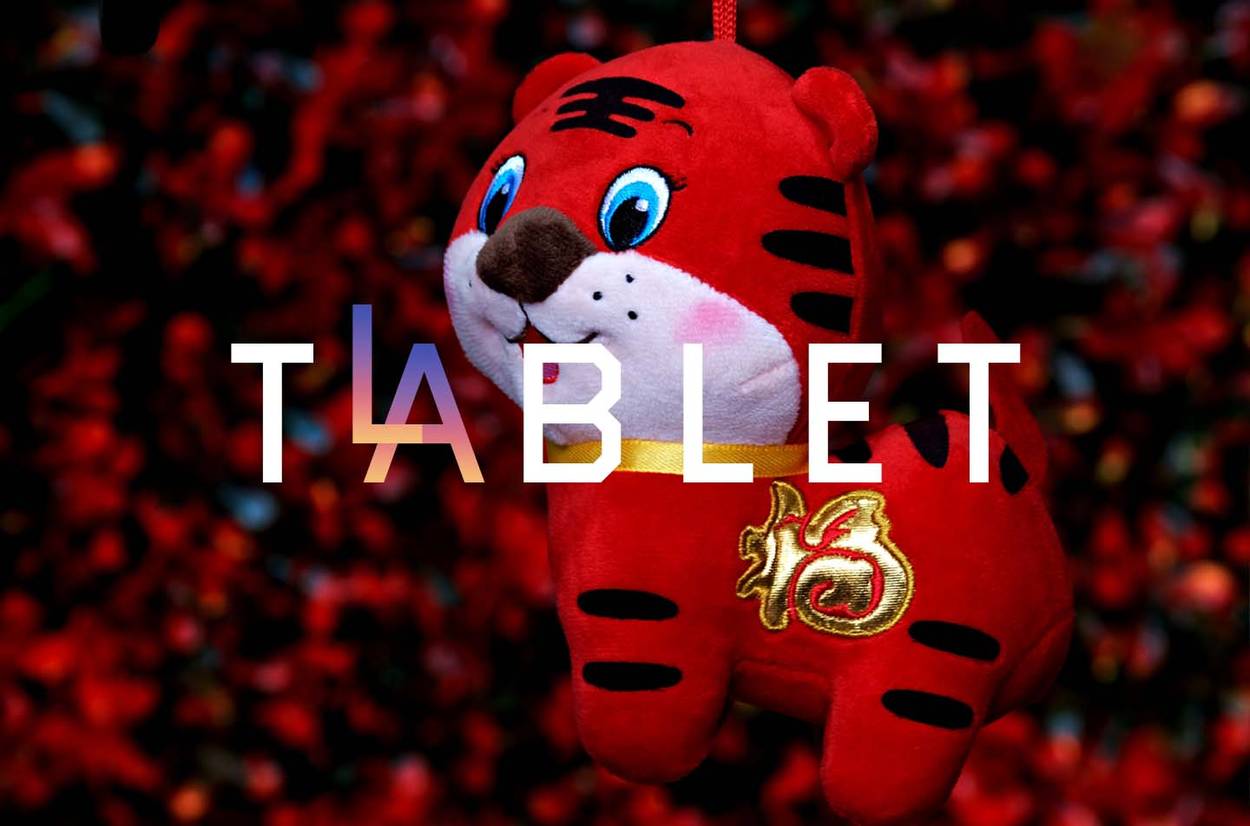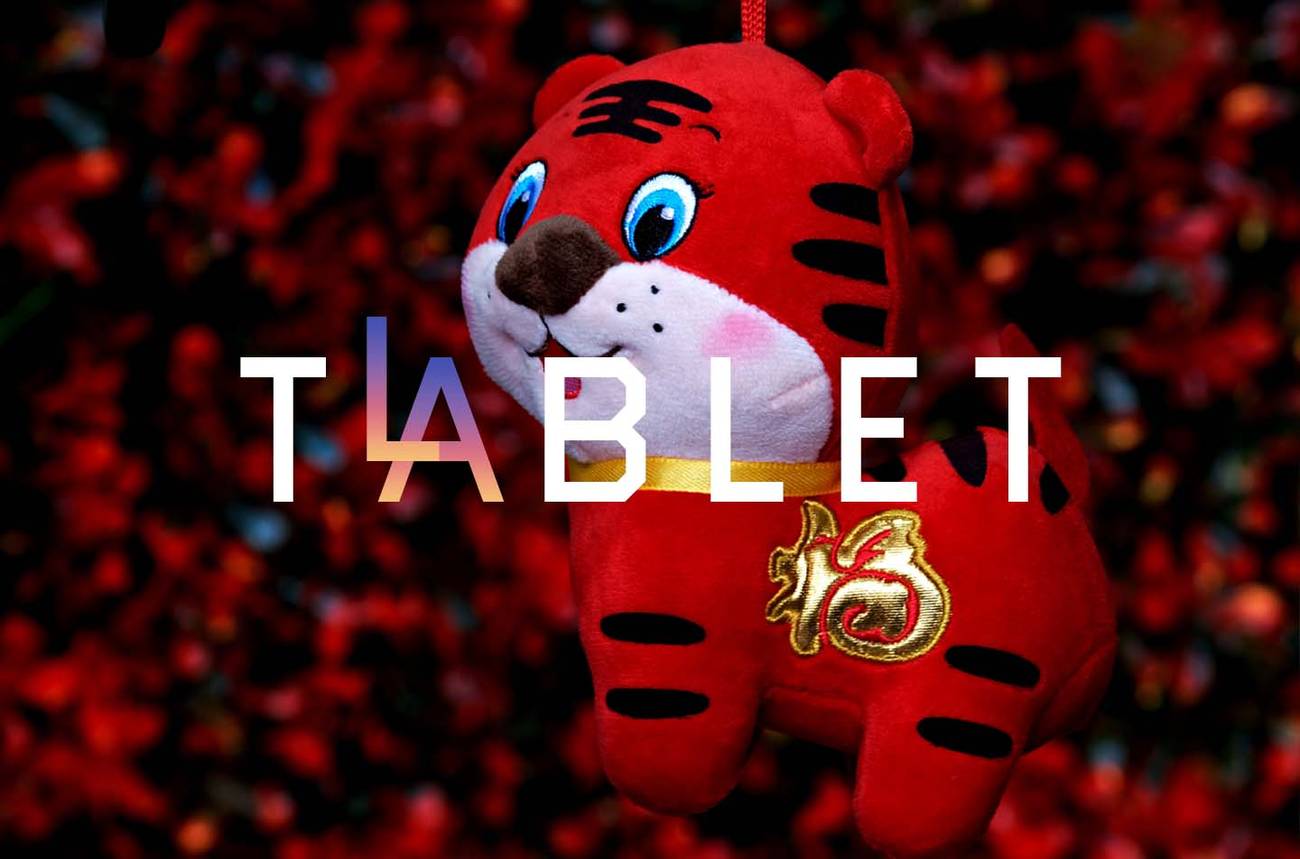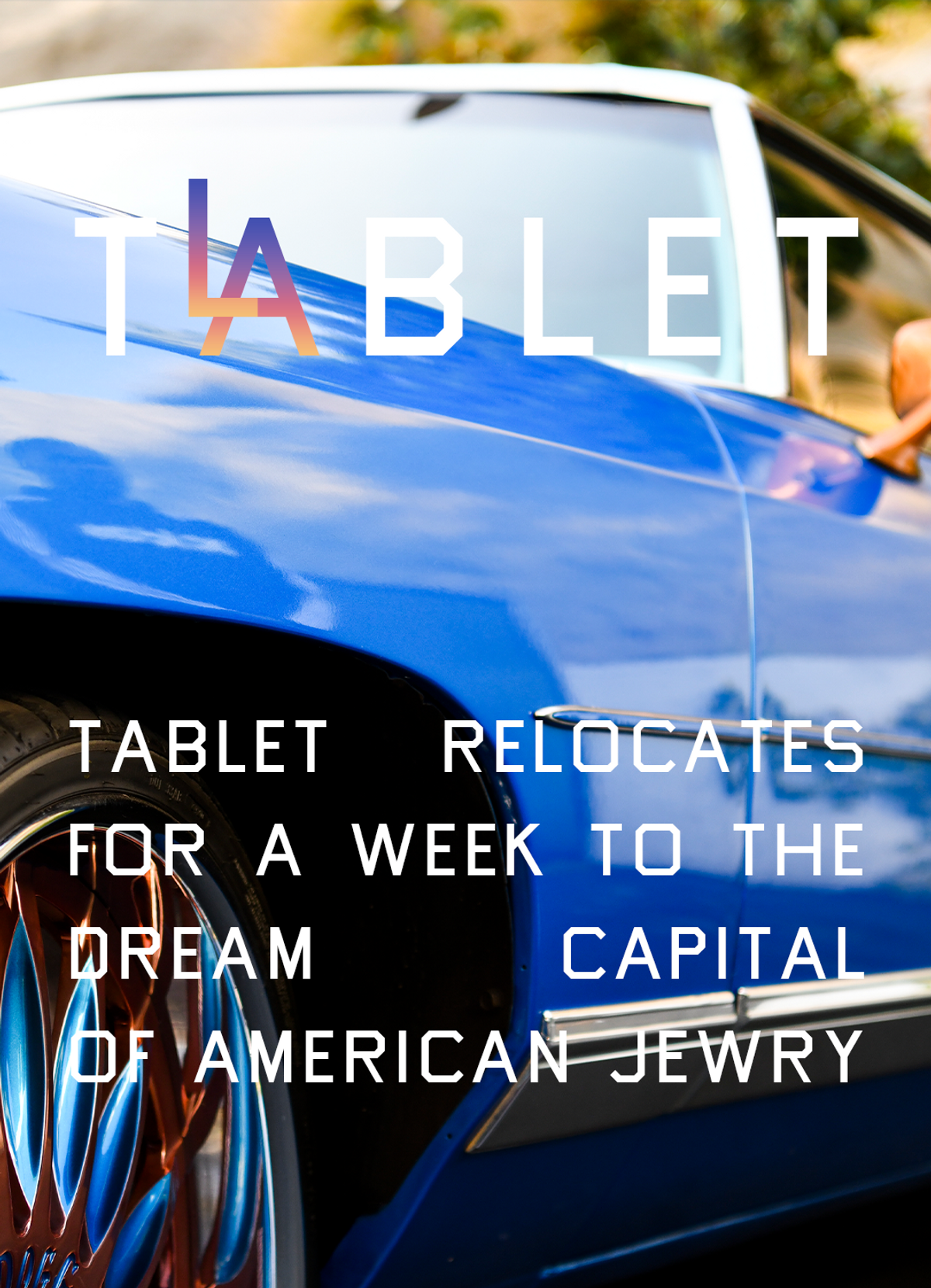LA Nights
How different is Brooklyn, really?




As Tablet’s resident 22-year-old, when the magazine decamped to LA on Friday, I was naturally instructed to go forth and evaluate the nightlife scene while the older editors finished Shabbat dinner and went to bed. I spent the first night of the trip with a friend at Soho Warehouse, one of three California outposts of Soho House, the global members’ club (to which I do not belong; I mooched off a guest invitation). The warehouse, located in an industrial and somewhat desolate part of downtown LA, is variously known for being the home of a lovely rooftop pool with an excellent city view; the place where Kanye West sometimes brings his children to play Connect 4; and where Ye allegedly punched an autograph seeker waiting outside at 3 a.m. a few weeks ago. In fact, my Tablet LA running mate Suzy Weiss was also recently there and saw a nearby figure in a pair of giant snow boots swaggering around outside, whom she believed to be a “homeless dude who’d convinced himself he was president.” It was Ye.
Some friends had assembled at Soho Warehouse that night for a Chinese New Year-themed party, featuring a performance from a group of traditional drummers in feathered red costumes that transitioned awkwardly into a set from a DJ who was apparently incapable of allowing a piece of music to play for more than 30 seconds. Since this is COVID LA, people weren’t really mingling—the closest we had to an out-group interaction was a drunken man wobbling up to my crop top-clad friend and suavely telling her how impressed he was that she wasn’t cold. The club itself isn’t particularly conducive to mingling either—a constellation of nooks and small tables better suited for intimate meals, like the one happening next to our pre-Chinese New Year dinner, in which a bespectacled man in too much gold jewelry shared a champagne bucket with three beautiful women who laughed loudly at his jokes.
After giving up on the DJ, we sat for a while at a recently abandoned table by one of the bars, where my friend posed with someone’s empty teapot for 15 seconds before a waiter scolded us for violating the no photo policy. So ended my big night out.
On Saturday night, looking for something a bit more freeform, I decided to track down a house party, a type of event that Los Angeles executes far better than New York City and which connects this city with the rest of America, where most people don’t have eight-person dinner parties in tiny apartments. I met my friend Ben in Silver Lake, a hilly neighborhood often described as the “Brooklyn of LA,” a description that rings especially true when you learn of its history as a former working-class Latino area that became a dive bar-studded haunt for artsy 24-year-old trust-funders ringed by millionaire families with stunning hillside homes.
The house where I met Ben sat atop a precarious tile staircase, guarded by a vaping man who informed me that the door was closed at the orders of “the guy who paid me.” Next to me, a blond woman who had just stepped out of an Uber groaned loudly and attempted to flag down the driver. “Just another reason to break up with my boyfriend!” she yelled at the uncompromising sentry.
Mercifully, I was rescued from the outdoors after Ben delivered a moving speech to the bouncer. We weaved our way through the crowd, which was mostly composed of “music industry folks” in multiple layers of voluminous clothing. In heels and a blazer, I resembled an undercover cop dressed for an event in a different city. We ended up outside on the deck, where a guy in platform boots was sitting on the ground, wearing a KN95 mask outdoors while having a group conversation. Brooklyn energy indeed.

Ben and his friends all had jobs somewhere at the nexus of tech and music. One of them described his job as “various music-related activities,” a turn of phrase that elicited my instant suspicion but turned out to be shorthand for a legitimate and interesting position managing a label and making music NFTs on the side. In fact, the whole squad was involved with NFTs—one guy rattled off a breathtaking volume of Shaquille O’Neal trivia, which he’d acquired because he worked for the company behind Shaq’s NFT. They were also all Jews originally from the East Coast, so the evening was punctuated by the occasional bit about neuroticism or Camp Ramah.
As it turned out, nobody in the group lived in Silver Lake—they were all residents of West Hollywood, which became abundantly clear as the crowd thinned around midnight and they started looking for a subsequent destination in the area by searching “bar” in Google Maps. We attracted a few dirty looks from some heavily eyelined women behind us as we weighed the merits of assorted one-line Google descriptions (“Gastropub dominated by raw surfaces,” “Local landmark whips up tropical drinks in a tiny room”), before deciding on a “playful neighborhood spot” called The Friend.
The Friend looked like any random spot in New York—disco ball, string lights, small enough that the dance floor and bar area merged into one semicrowded space where a few people took vague stabs at dancing. This feeling was reinforced when we saw a big decorative sign across from the bar, which read “Live on Stage: Bowery Ballroom.” But it wasn’t the Bowery Ballroom.
Since the vibe was clearly not very Silver Lake either, I asked the group where they normally went out.
“I never go out these days,” Ben helpfully responded.
“Well, if you did, back in the day …”
“If you asked me in 2019, I’d tell you that LA was such a good place to go out,” he said. “But it hasn’t been like that ever since the pandemic. Things just haven’t been as fun.” His friends nodded in agreement. It was 1:45 a.m., and the bartenders flipped on the lights and started shooing people out before what seemed to be a universal LA closing time of 2 a.m. In the bright yellow “get the hell out of here” lighting, everything looked a little gross—bar trash on the ground and the final throes of a semipassionate make-out session happening by the bathrooms. The bouncers herded us outside to wait for our Uber, which was 16 minutes away.
“So what is quantifiably different?” I asked Ben. “Or is it just the vibes?”
“Yeah, vibes are off for sure,” he said. “But I think it really has to do with the fact that LA still hasn’t come back from COVID. So many problems are just worse. The city can’t recover, so the nightlife won’t recover—it’s all part of the same issue.”
Having arrived in California like a bat out of wintry Manhattan COVID hell, I was feeling especially gracious toward LA—which has the undeniable virtue of being located on the other side of the country, where it is warm. Still, Ben’s take rang a bell. If I must show a vaccine card, wear a mask to my table, and sidestep heaps of trash in an atmosphere of haphazard bio-paranoia mixed with generalized social and economic decay, at least I should be able to wallow in it until 4 a.m., mingle freely with weirdos, and have a decrepit cab appear out of the rubble and whisk me back within minutes to my home, no matter how tiny. Sunshine can only get a city so far.
Ani Wilcenski is Tablet’s audience editor.